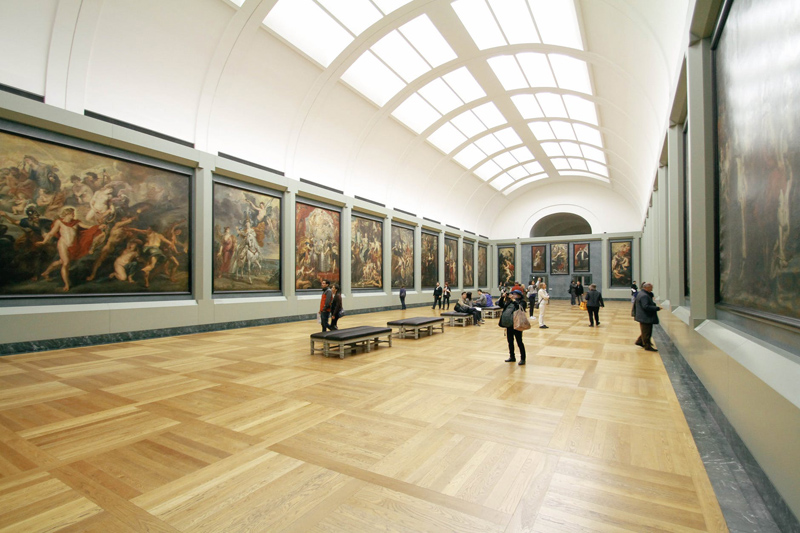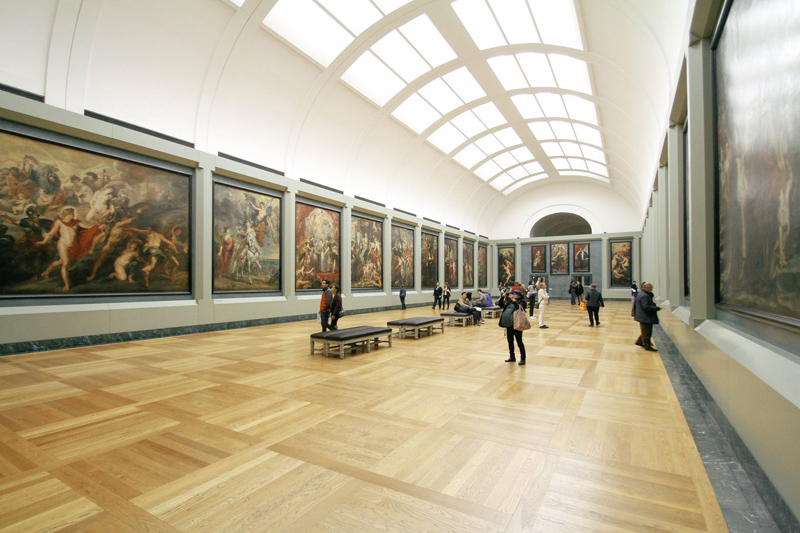Presidential Libraries

The William Jefferson Clinton Presidential Library, the latest addition to the National Archives and Records Administration (NARA), recently opened in Little Rock, Arkansas with great fanfare. All of the living past Presidents (except Gerald Ford, who was not feeling well) attended with their First Ladies, along with several Presidential children, including Caroline Kennedy. Bono and The Edge from U2 and Barbara Streisand were also in attendance for the rain-drenched ceremonies.
Contrary to what you might think, these are not “traditional” libraries. Instead, they are repositories for preserving and making available the papers, records, and other historical materials of U.S. Presidents since Herbert Hoover. Each facility also includes a museum, highlighting the President’s administration, and conducts related public programming.
NARA operates 11 Presidential libraries:
· George Bush Library
· Jimmy Carter Library
· William J. Clinton Presidential Library and Museum
· Dwight D. Eisenhower Library
· Gerald R. Ford Library and Museum
· Herbert Hoover Library
· Lyndon B. Johnson Library
· John F. Kennedy Library
· Ronald Reagan Library
· Franklin D. Roosevelt Library
· Harry S. Truman Library
Although the Nixon Presidential Library is a private non-profit, the Presidential Library system also includes the Nixon Presidential Materials Staff, which administers the Nixon Presidential materials under the terms of the Presidential Recordings and Materials Preservation Act.
The Presidential Library program began in 1939, when President Franklin Delano Roosevelt donated his papers to the federal government. Before this, Presidential papers were preserved by the heirs of the President, some of which found their way into historical societies and museums – some were lost or voluntarily destroyed. The Library of Congress does contain several collections of Presidential papers from previous administrations, but the bulk of the collections that still exist are in the hands of private non-profit museums.
Many of the privately funded Presidential sites are now recognizing the importance of being viewed as *the* repository of artifacts, papers, photographs, and memorabilia for their President. For example, the McKinley Museum in Canton, OH recently changed its name to the Wm. McKinley Presidential Library & Museum, to better identify the facility with the President.
According to NARA’s Presidential Libraries website, “Roosevelt's decision stemmed from a firm belief that Presidential papers are an important part of the national heritage and should be accessible to the public. He asked the National Archives to take custody of his papers and other historical materials and to administer his library. At the dedication of his library on June 30, 1941, Franklin Roosevelt observed:
"To bring together the records of the past and to house them in buildings where they will be preserved for the use of men and women in the future, a Nation must believe in three things.
It must believe in the past.
It must believe in the future.
It must, above all, believe in the capacity of its own people so to learn from the past that they can gain in judgement in creating their own future."
In 1950, President Truman also decided to build a library to house his Presidential papers. In 1955, Congress passed the Presidential Libraries Act, establishing a system of privately erected and federally maintained libraries, encouraging other Presidents to donate their papers.
Funds to build each Presidential Library must be raised from private and nonfederal public sources. After the new Presidential Library opens, the private organization turns over the Library to the National Archives and Records Administration to operate and maintain.
Before 1978, it was generally thought that the papers of a President were his private property to do with as he wished. The Presidential Records Act of 1978 established that the Presidential records that document the constitutional, statutory, and ceremonial duties of the President are the property of the United States Government.
Contrary to what you might think, these are not “traditional” libraries. Instead, they are repositories for preserving and making available the papers, records, and other historical materials of U.S. Presidents since Herbert Hoover. Each facility also includes a museum, highlighting the President’s administration, and conducts related public programming.
NARA operates 11 Presidential libraries:
· George Bush Library
· Jimmy Carter Library
· William J. Clinton Presidential Library and Museum
· Dwight D. Eisenhower Library
· Gerald R. Ford Library and Museum
· Herbert Hoover Library
· Lyndon B. Johnson Library
· John F. Kennedy Library
· Ronald Reagan Library
· Franklin D. Roosevelt Library
· Harry S. Truman Library
Although the Nixon Presidential Library is a private non-profit, the Presidential Library system also includes the Nixon Presidential Materials Staff, which administers the Nixon Presidential materials under the terms of the Presidential Recordings and Materials Preservation Act.
The Presidential Library program began in 1939, when President Franklin Delano Roosevelt donated his papers to the federal government. Before this, Presidential papers were preserved by the heirs of the President, some of which found their way into historical societies and museums – some were lost or voluntarily destroyed. The Library of Congress does contain several collections of Presidential papers from previous administrations, but the bulk of the collections that still exist are in the hands of private non-profit museums.
Many of the privately funded Presidential sites are now recognizing the importance of being viewed as *the* repository of artifacts, papers, photographs, and memorabilia for their President. For example, the McKinley Museum in Canton, OH recently changed its name to the Wm. McKinley Presidential Library & Museum, to better identify the facility with the President.
According to NARA’s Presidential Libraries website, “Roosevelt's decision stemmed from a firm belief that Presidential papers are an important part of the national heritage and should be accessible to the public. He asked the National Archives to take custody of his papers and other historical materials and to administer his library. At the dedication of his library on June 30, 1941, Franklin Roosevelt observed:
"To bring together the records of the past and to house them in buildings where they will be preserved for the use of men and women in the future, a Nation must believe in three things.
It must believe in the past.
It must believe in the future.
It must, above all, believe in the capacity of its own people so to learn from the past that they can gain in judgement in creating their own future."
In 1950, President Truman also decided to build a library to house his Presidential papers. In 1955, Congress passed the Presidential Libraries Act, establishing a system of privately erected and federally maintained libraries, encouraging other Presidents to donate their papers.
Funds to build each Presidential Library must be raised from private and nonfederal public sources. After the new Presidential Library opens, the private organization turns over the Library to the National Archives and Records Administration to operate and maintain.
Before 1978, it was generally thought that the papers of a President were his private property to do with as he wished. The Presidential Records Act of 1978 established that the Presidential records that document the constitutional, statutory, and ceremonial duties of the President are the property of the United States Government.
You Should Also Read:
NARA's Presidential Library Site
William Jefferson Clinton Presidential Library & Museum

Editor's Picks Articles
Top Ten Articles
Previous Features
Site Map
Content copyright © 2023 by Kim Kenney. All rights reserved.
This content was written by Kim Kenney. If you wish to use this content in any manner, you need written permission. Contact Kim Kenney for details.



